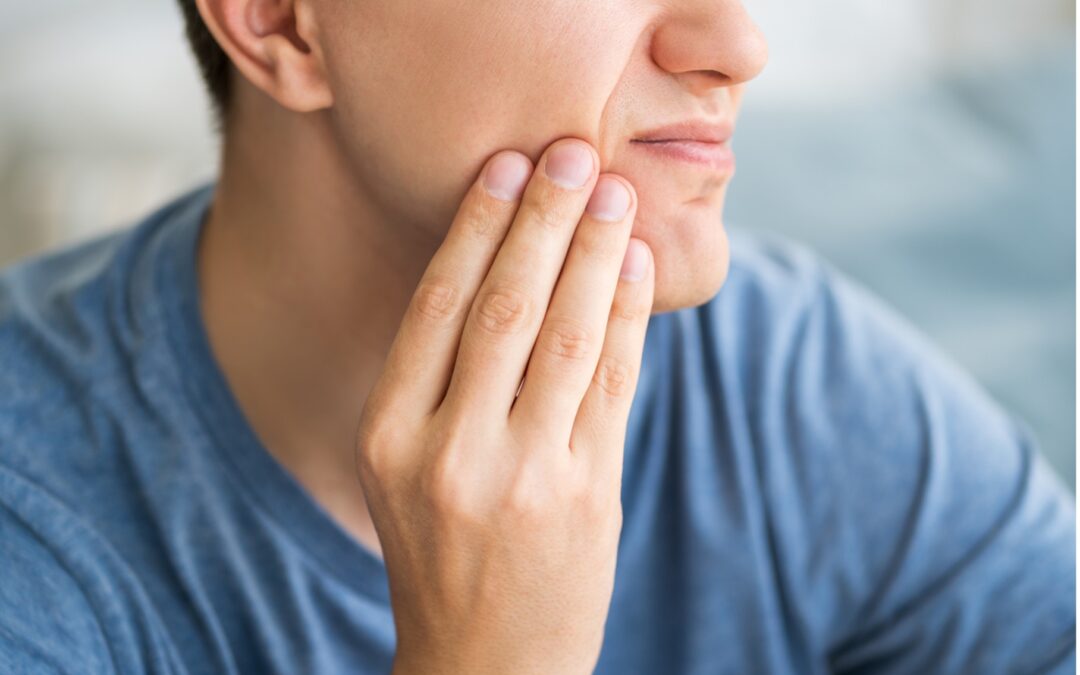Tooth sensitivity can be an unwelcome and uncomfortable issue affecting millions of people worldwide. Most people experience the sharp pain and discomfort of teeth sensitivity at one time or another. Certain foods or temperatures usually trigger it. Episodes may be temporary and improve with minor adjustments or habits, or symptoms may require intervention. Just a few common causes of teeth sensitivity are:
- Gum recession from periodontal disease
- Inflamed gum tissue from gingivitis
- Worn or cracked teeth enamel or tooth
- Acidic foods and prolonged use of mouthwash
- Plaque buildup.
- Grinding or clenching teeth
Proper Diagnosis is Essential
As there are different causes for tooth sensitivity, so there are solutions available. But a treatment method may only work for some. That’s why a proper diagnosis is critical in treating it. Without an accurate diagnosis, a person is only treating the sensitivity without treating the underlying cause of it
Relief for Minor Tooth Sensitivity
In addition to scheduling an appointment to get your problem diagnosed, there are some things you can do to relieve the sensitivity in the meanwhile:
1. Use Desensitizing Toothpaste.
Desensitizing toothpaste is specifically formulated to alleviate tooth sensitivity. It contains compounds that block the nerve pathways, reducing sensitivity to hot and cold sensations. Make sure to use a soft-bristled toothbrush and gently brush your teeth with the desensitizing toothpaste at least twice daily for optimal results.
2. Maintain Good Oral Hygiene.
Consistent and proper oral hygiene is crucial in preventing and managing tooth sensitivity. Brush your teeth gently in a circular motion, and floss daily to remove plaque and debris between teeth and at the gumline. Proper oral hygiene will help prevent gum recession and enamel erosion, significant contributors to sensitivity.
3. Avoid Teeth Grinding.
Teeth grinding or clenching, known as bruxism, can lead to enamel wear and heightened sensitivity. Consider wearing a custom-fit nightguard to protect your teeth while sleeping. Additionally, stress management techniques can help reduce teeth grinding during waking hours.
4. Receive Fluoride Treatments.
Fluoride treatments applied by your dentist can strengthen your tooth enamel, making it more resistant to sensitivity triggers. These treatments can be especially beneficial if your problem is caused by enamel erosion.
5. Get Professional Dental Cleaning.
Regular dental visits for professional cleaning can help remove plaque and tartar buildup, reducing the risk of gum disease and sensitivity. Your dentist can also identify and address any underlying dental issues contributing to your sensitivity.
6. Avoid Overuse of Whitening Products.
While teeth whitening products can enhance your smile, overuse can lead to sensitivity. Choose dentist-recommended whitening treatments, and refrain from using them excessively.
7. Stay Hydrated.
Drinking plenty of water helps maintain a healthy saliva flow, essential for neutralizing acids and protecting your teeth from sensitivity triggers.
8. Choose a Tooth Sensitivity-Friendly Diet.
Certain foods and drinks can aggravate tooth sensitivity. Limit the intake of highly acidic or sugary items as they can wear down the enamel. If you indulge in such foods, rinse your mouth with water afterward to neutralize acids and minimize their impact on your teeth.
9. Take vitamins.
Getting enough vitamins through your diet or supplements can help improve tooth sensitivity. Healthline provides a guide to the10 Vitamins and Supplements for Gum Health and Gum Disease.
Conclusion
Tooth sensitivity doesn’t have to be a daily struggle. First and foremost, get a correct diagnosis for your tooth sensitivity. Additionally, you can significantly reduce or even eliminate tooth sensitivity by incorporating these practical solutions into your oral care routine. So, take charge of your dental well-being and let your smile shine confidently, free from sensitivity woes. Contact us now.
Sincerely,
Your Friendly Team at
Modern Care Endodontics

